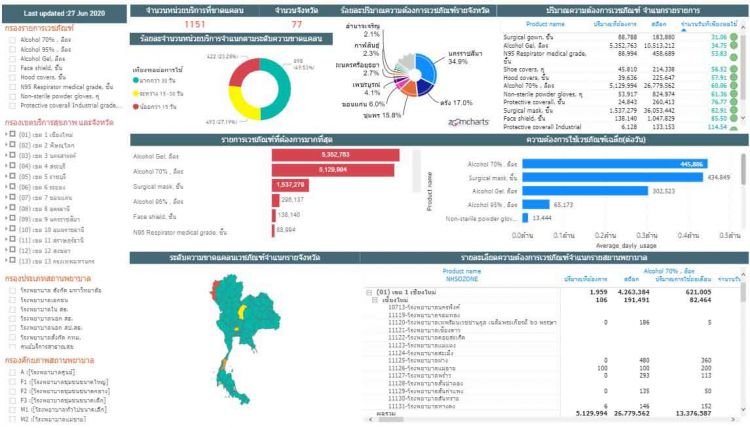Healthcare Logistics for Covid-19

Sponsored by
For most products, the global demand is reasonably steady, showing only relatively small increases or decreases over periods over periods of months, if not years. This allows producers and supply chains to plan ahead to meet this demand, including long-term or high-investment developments such as building new factories. Since the start of 2020, the global demand for medical-grade Personal Protective Equipment (PPE), such as face masks and face shields, gloves, gowns, and goggles; has increased by around 20 times.
This PPE is vitally important in the fight against Covid-19. It protects frontline staff in healthcare settings from infection, not only for their own wellbeing and their ability to continue working, but also to prevent them from possibly passing on the virus to other patients, many of whom will be particularly at risk due to underlying health conditions.
The surge in demand for PPE has resulted in global shortages, and many hospitals around the world struggling to provide this protection for their staff. Although sometimes these shortages are due to difficulties in increasing production, problems can also come from the supply chains. In situations like this, there is enough equipment, but it is difficult to get it to the right place following such a rapid shift in need.

A team of researchers including Asst. Prof. Tuangyot Supeekit from the Center of Logistics Management and Healthcare Supply Chain (LogHealth), Faculty of Engineering, Mahidol University, led by Assoc. Prof. Duangpun Kritchanchai, is developing a new system for allocating PPE to hospitals, both from governmental allocation through the Ministry of Public Health and from generous private donations.
After an analysis of the problem, which showed that often hospitals will have an excess of certain types of PPE, but a lack of others; the team designed a necessary business process and business flow to match the donated or procured medical supplies with the demand from the hospitals. A web application was then created to allow implementation of this business flow, calculating the virtual stock of all the medical supplies from the donations and government procurement, and matching these supplies with each hospital’s needs. An online Smart Donation system was also created, to inform potential private donors of what PPE was needed by which hospitals. After centrally matching supplies with demands, the system managed the distribution by creating tracking numbers and providing Thailand Distribution Post with the relevant information to ensure the packages went to the appropriate locations.
At the time of writing, the system has been successfully implemented, nationally launched and submitted to the Ministry of Public Health. Asst. Prof. Supeekit has highlighted that, although this smart logistics system was developed to meet the current need caused by Covid-19, it can also be used after the situation returns to normal, to optimize the distribution and group purchasing of key medical supplies including medicine under normal circumstances.